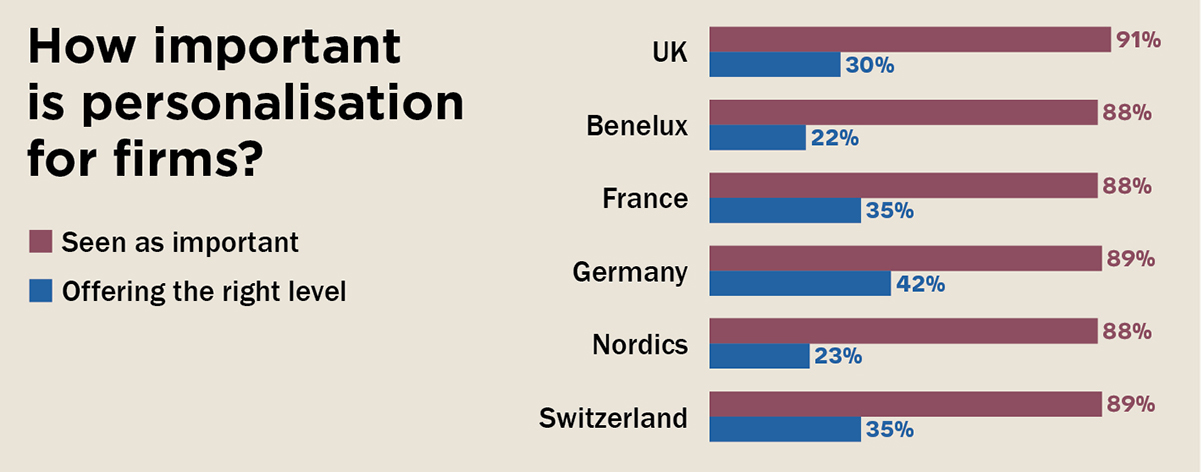Previously in ACUMEN, I wrote about content with context, as well as how marketers must understand customers, analyse consumer data and provide a contextual marketing experience. While this still holds true, the growth of artificial intelligence (AI) has changed the way marketers go about the process.
AI has added a whole new dimension to the task of staying relevant. Since the introduction of customer-relationship management software—the now-critical CRM—firms have steadily improved their relationships with those who purchase their goods and services. But now we are seeing a major shift. Nearly three decades after Siebel CRM Systems, Inc. unleashed the first true CRM, solutions powered by AI are putting new methods of personalisation in the hands of marketers and content creators. Some examples are virtual assistants, chatbots and product recommendations that tempt us to purchase additional items.
In fact, firms are increasingly turning to AI tools to improve their digital marketing efforts. While only 7% of businesses are correctly using AI to optimise marketing and ad campaigns, 42% are in the testing phase. The capabilities of AI have moved well beyond simply collating and analysing user data. It is now possible to actually predict consumer behaviour. But is this something into which all brands should dive?

Up close and personal
Today’s consumers have more choices than ever. What to buy? When? How? These are questions that are much more complex than before. Not only is the process more difficult for the buyer, it is also more difficult for brands to cut through the noise.
In 2019, you must be one step ahead of consumers to remain relevant. Consumers have high expectations for a personalised experience. If they don’t feel that you are speaking to them about their particular needs, you won’t succeed.
According to research conducted by creative software developer Adobe Inc., between 21 August and 12 September 2018, the vast majority of marketers believe personalisation is important to customer experience and business. However, there is a large gap between expectation and reality for many industries. In the UK, 91% of businesses believe personalisation is important for success. But only 30% offer the right level of personalisation.
In the pursuit of successful marketing, demographic segmentation (e.g., according to age, gender and income) has assisted with targeting the right audience at the right time. And while segmentation offers better insight into marketing, it tells us virtually nothing about a consumer’s interests, nor does it predict their future behaviour.
The use of AI, however, allows brands to dig deeper and predict what a consumer will do. Often, connections emerge that weren’t seen before. Using this data, we can create experiences tailored to each consumer. An example is delivering advertisements for products that a potential buyer is interested in based on their browsing and past-purchase history. This is one way in which AI can deliver a better user experience and increase the chances that we will make a sale.

AI and marketing
Businesses have long used data collection to shape their marketing strategies. Having too little or too much data can prevent a firm from successfully reaching its target audience.
According to Adobe, 60% of European firms believe the biggest barrier to drawing quality insight from customer data is overabundance: too much data is collected from too many sources. Firms are drowning in information.
And while they fight to surface from this flood of data, 51% also say they struggle to combine, structure and integrate data in a meaningful way. If making sense of data is draining your resources, then you aren’t delivering a satisfactory customer experience. AI may be the answer. By tasking intelligent algorithms with the job, firms can allow their human resources to focus on improving the customer experience.
Future AI
Having recognised the need for increased personalisation and customer experience, a majority of industries are investing in AI to advance their operations. Some 48% say they are working to implement AI for improved personalisation in 2019, and another 22% are targeting the end of 2020.
It is expected that the coming 12–18 months will be significant for the AI community. Keeping up with this technological change isn’t easy—and it does require investment and resources—but the benefits outweigh the initial burden. AI is changing the world of content marketing. Are you taking full advantage of it?


